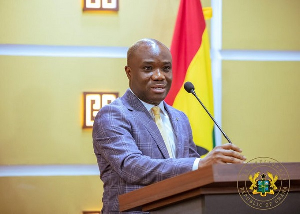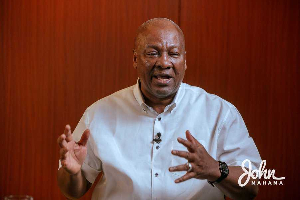Accra, July 28, GNA - The tertiary education system has made strides but it is still confronted with challenges including limited access and inequity, Mr Alex Tettey-Enyo, Minister of Education said on Monday.
He said issues of quality, relevance, management and governance were also challenges facing the sector. Mr Tettey-Enyo said this when he inaugurated two councils, the Council of the Institute of Professional Studies (IPS) and the Council of the Institute of Journalism (GIJ). The 14-member council of the IPS is chaired by Justice Nii Aryeetey, Registrar of Methodist University College. The members are Professor Joshua Alabi, Mr Harrison Kofi Abutiate, Mr Pius Kweku Addae, Mr Kaleem Puotiere Ken Yelibo, Mr Peace M Adzadi, Dr Anthony K. Ahiawodze, Mr James Abban, Mr Felix Ekow Nkrumah, Mr Kwabena Augustine, Mr Kessie, Mrs Helen Boafo, Prof. Osborne Jackson, and Mr Paul Effah.
Members of the GIJ council, chaired by Alhaji A.B.A. Fuseini, an Editor of the Daily Graphic, are; Mr Ebo Afful, Mr K.A. Batse, Mr David Newton, Mr Ofoe Diogo, Mr Ransford Tetteh, Ms Helen Annan, Mr Richard Quashigah and Mr Paul K. Krampa. Mr Tettey-Enyo said the responsibility of the councils may be grouped under three basic functions namely; law making, administrative and oversight responsibilities. He said in terms of access, there was the tendency for students of second cycle institutions to look up mainly to the universities for tertiary education. However, he said, the councils needed to ensure that as tertiary institutions, they stimulated research activities to enable them to become more relevant and competitive within the international academic community.
Mr Tettey-Enyo said both institutions enjoyed substantial degree of autonomy but this did not imply a lack of accountability. On appointment of rectors, the Minister noted that a constitutional responsibility which had been conferred on Council by Article 195 of the 1992 Constitution enjoined the executive to offer vision and academic leadership as well as maintain harmonious human and industrial relations within the institution. He explained that the respective acts set the various measures of accountability including keeping of proper accounts and records to be audited by the Auditor-General or an auditor appointed by him within six months after the end of each financial year. 2
General News of Tuesday, 28 July 2009
Source: GNA
















